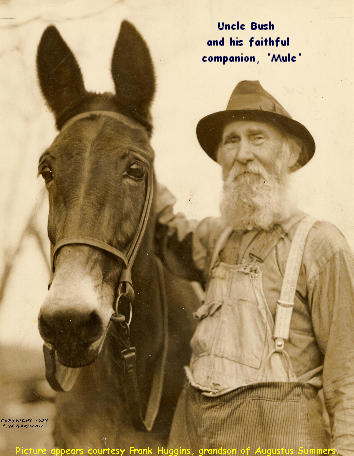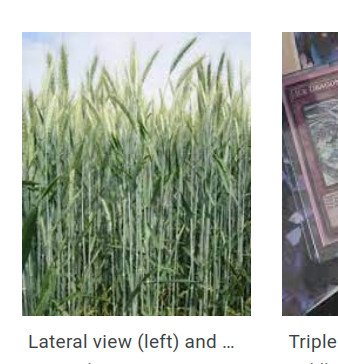I am not a native English speaker and I have sometimes referred to people as male and female (as that is what I have been taught) but I have received some backlash in some cases, especially for the word “female”, is there some negative thought in the word which I am unaware of?
I don’t know if this is the best place to ask, if it’s not appropriate I have no problem to delete it ^^
I’d say it’s a tone and context sorta thing.
Definitely.
[NOT OKAY] “Hey guys, check out those females!”
[Okay.] “There were seventy-five males and sixty females in the study.”
[NOT OKAY] “Gonna go out with my favourite females tonight” (unless you’re a girl in a girls night out and doing a comedic take on the bro culture)
[Okay] “The shoplifter was ~170cm tall, female, wore large sunglasses and ran surprisingly fast for someone in such high heels smelling so strongly of chardonnay”
Why is the third bad
It makes them sound like specimens, dehumanizes and objectifies them. Kinda analogous to saying “I’m taking my offspring to the movies” instead of “I’m going with my son to the movies.”
Idk I’m not sure about the rules myself but I imagined it as a man saying that to a bro who would reference the first dude as “a guy” while still referencing women as females.
So essentially it’s just about consistency. For me at least. Either “man / woman” or “male / female”.
Idk I’m not the language police
I think the people who “infected” this word just have the general mindset of human relations being no different from any other animals, e.g. they subscribe to how Jordan Peterson explains human behavior by comparing us to lobsters. They tend to take human ideas like trust and altruism (love, if you will) out of the equation and view relationships only as evolutionary transactions. So they probably wouldn’t have any problem referring to themselves as males any more than they refer to women as females.
Anything can be offensive in the corresponding context.
I mean, I didn’t know “orange” could be offensive, but then Trump showed up.
I understand your pain. My home language doesn’t even have separate words for woman and female, or male and man.
How do you refer to a female animal?
What language, if you don’t mind me asking? I’m interested in linguistics and this seems like an interesting tangent.
It’s kind of like the difference between talking about people who are black and referring to someone as “one of the blacks”. It’s subtle, but the latter is objectifying where as the former is descriptive.
It’s even more subtle than that. We’ve defeated most actual injustice in our society, and now people are scraping the bottom of the barrel to find injustice to fight against.
hmmm, that’s an assessment I can’t get behind, lol
This is the dumbest thing I’ve read this year.
I have some bad news to tell you about capitalism
How about: “The weaker sex” instead?
“I have a female friend.” (As in “I have a friend that’s a woman.”) “I’ve talked with a female today.” (As in “I’ve talked with a woman today.”)
The first one is fine, because isn’t using the word as an adjective. The second one is derogatory, because it is being used as a substantive.
So stating a fact is derogatory?
Where the fuck do y’all get your information?
Lmao this incel can’t stop commenting in here 😂
Found the incel lol
Considering I read the initial statement to my mom (60) and she said wtf?
Y’all just assume. Hope ya don’t go through life with that kind of outlook you will never make friends
“My mom said it’s OK” is just telling on yourself, my dude.
Removed by mod
It really depends on the context. When used as an adjective, it’s fine. For example, the sentence “My female coworker has brown hair.” is correct. However, when it is used as a noun, it can be dehumanising. For example: “A female at my workplace has brown hair” is dehumanising. It can be used as a noun when talking about non-humans (“After mating, the female will lay her eggs.”) or in medicinal context when referring to people with uteruses.
However, when it is used as a noun, it can be dehumanising. For example: “A female at my workplace has brown hair” is dehumanising.
The fuck are you talking about?
Using human nonspecific terminology to describe women is dehumanizing. They are women, not “females”. The only people who use “female” as a noun mean it the same way they might call a woman a “hoe”. It’s a word you use when you deliberately want to minimize the existence of another person. Literally referring to a woman like she is an object, or livestock…
Using human nonspecific terminology
to describe womenis dehumanizing.What an oxymoron if I’ve ever heard one.
Of course you think “women aren’t human” is a funny joke…
Touch grass, incel.
Ass u me much? I never said that ya Qanon crazy fuck
Sorry to tell ya I live on a farm, if anyone says that they are just projecting and should prolly go touch grass themselves
The fact y’all think calling a woman a female is dehumanizing is fucking pathetic. Go out and get a life
Ah, I understand now. You think that “human nonspecific terminology” and “dehumanizing terminology” are oxymoronic. Let me help clarify this for you with a lesson in reading comprehension:
“Human nonspecific terminology” refers to terminology that isn’t used specifically to refer to humans. For example, nouns like “male”, “female”, “subject”, or “specimen” can refer to humans, but they can also apply to things like plants and animals. Casually using these terms socially is generally thought of as dehumanizing and disrespectful.
This is opposed to respectful human terminology like “man”, “woman”, “participant”, or “person” that almost exclusively refer to humans.
If a man thinks of himself as a man, but refers to women as “females”, people tend to assume he has less than an acceptable amount of respect for women, since he uses less human terminology to describe them than he would to describe himself.
This is why I preferred math over English classes.
I get that you’re being practical here. You’re not technically wrong, and the people who are disagreeing with you really are arguing points of nuance.
But they aren’t wrong either. That nuance matters in certain contexts.
You can pick this hill to defend. Or you can learn something that you didn’t know about the people in your online community, and probably your IRL community too.
Embrace learning something new. It will almost never be a waste of your time.
That you shouldn’t call a human woman “a female”?
Not English native here, please don’t be too harsh for asking this.
I’ve heard male very often as noun, and doesn’t seem to have a negative reaction. Is one “generally” considered worse to use than the other?
Yeah it’s tricky. Using “female” as a noun in a non-biological context is often used by incels and misogynists in order to dehumanise women. Whereas there isn’t the same trend of certain groups using “male” to dehumanise men, or at least I’ve never heard of it happening in real life.
In a vacuum, both would be the same, but because there is a much larger trend of using “female” to dehumanise women than using “male” to dehumanise men, it’s not a true double-standard.
And as long as you’re not being a dick, especially if English isn’t your native language, then people will know what you mean. But if you are consciously trying to make an effort, then don’t use “female” and “male” as nouns to refer to someone’s gender.
A lot of the reason why “Female” has a bit of a negative slant, is because of the kinds of people/communities that overused the word.
Those groups used female as a way to say that women are only useful as somewhere to put your dick. There didn’t really seem to be a group using male in a dehumanizing way, so it doesn’t really have the same negative feeling.
Kinda like how if someone just comments “Jew” on a post it can feel negative, but if they say “Canadian” or “Bulgarian” it feels neutral.
Can you give some examples?
I personally would always prefer saying boy girl man woman over male and female. Whener I first saw it used it was always in a negative context like “young black male” in regard to some crime to give the opposite example. Just like in French I think it’s weird to refer to humans with male and female, although accurate of course, as I would only expect it in for animals.
This is what I said to someone who asked a very similar question about the same thing a while back:
‘Females’ is, effectively, a ‘technical term’ you might say, that isn’t used in normal conversation. It’s used specifically in situations where distance from the subject being discussed is intentional. It is the sort of language used in police reports, medical reports and the like…when it’s even being applied to humans at all. Its use is perhaps more common referring to animals; it’s the sort of terminology you’d expect to hear in a nature documentary.
The people trying to push its use are intending to make the subjects - women - sound ‘other’ and separate and alien by referring to them as ‘females’. Not everyone who is picking up this terminology intends it that way, but the connotations are unavoidable because of how language works in common use, and therefore if you don’t intend it that way, you badly need to be made aware of it so you can stop.
I guess it would be kind of like referring to another person as “human”.
"Hey who helped you with this?”
“This human over here, my co-worker.”
Using it as an adjective in some cases is fine, never use it as a noun, unfortunately due to assholes using it that way it now has a negative conotation.
If you say “This female” vs. “This woman”, it could be considered very rude. English is very context dependent.
Others in this thread will tell you it’s only acceptable as an adjective or for animals. That’s not true. Here are some non-adjective uses that most people wouldn’t consider misogynistic on the surface:
- A female changing room (noun adjunct)
- Female-only spaces. (noun)
- Sorry, this shelter is only for females. (noun)
- This procedure is not recommended for females. (noun)
- Only females are eligible for this award. (noun)
- “Is the person you’re going out with tonight a male or a female?” (noun, my mom said this)
- “A male character has no stats difference compared to a female.” (Probably an adjective but arguably not)
I just went to a Women’s Day film festival where females were talking about females while using the word “female” all day.
I’m pretty sure people are way overreacting to it. In the end it’s just context and tone. “Women” can be just as derogatory depending on how you say it.
the only examples here which don’t sound completely gross are the ones where you misunderstood the part of speech…
which ones did I misunderstand the part of speech?
“female-only” is an adjective phrase where “female” is a noun. Compare “lion-only zoo.” Adjectives don’t work here (× big-only zoo)
A female changing room (noun adjunct)
Noun adjunct is a noun functioning as an adjective.
“A male character has no stats difference compared to a female.” (Probably an adjective but arguably not)
“female [character]” definitely an adjective
“female-only” is an adjective phrase where “female” is a noun. Compare “lion-only zoo.” Adjectives don’t work here (× big-only zoo)
Yes “female-only” sounds gross.
A noun adjunct is a noun functioning as an adjective. By contrast, in “a female scientist,” female is an adjective and not a noun adjunct.
To me, “female-only spaces” sounds like conventional English and I much prefer it to “woman-only” which sounds gross to me. Google NGrams agrees.
I agree with you regarding the character example.
male/female usually used for animals, for humans usage of man/woman would be the right way
Humans are animals though. Why do they get offended when they get reminded of that fact? Smh, this is why us members of the galactic community don’t like your species too much. /S
Maybe that’s how you animals in your “galactic community” operate, but be careful… a lot of people in these parts eat animals for breakfast. For your own self preservation you might want to come up with some reasons why you’re more than just an animal before we get to barbecue season.
Alright. Time to change living conditions to ‘livestock’. I think some of you do it in your space simulator games. /S
Kinda like how ignorant people only thing humans have consciousness while more and more studies show capability in many animals
I disagree. Male/female is used plenty with humans, but it tends to be used in a more clinical or ‘objective’ manner, such as in legal documents, autopsy reports, police suspect descriptions, things of that sort.
I think the use of, e.g., “Look at those four males over there”, it has a bit of a connotation of separation of the personhood of the people involved. A man is a living, thinking being; he is worthy of dignity, and he has a soul. A ‘male’ can almost be called an ‘it’: it has a characterization of cold, scientific classification.
Don’t bring science to feminism!
A ‘male’ can almost be called an ‘it’: it has a characterization of cold, scientific classification.
But that’s the issue: its dehumanizing and that’s done intentionally. The use case you mention seems to just be an extension of its usage for livestock rather than an exception. But its an exception to it being used in a misogynistic way while still being a noun.
Context is important. If I say: “Sexual dimorphism is when a species has two distinct sexes, male and female,” I dont think many would find that rude. Now, if I say “Im so sick of females telling me what to do” you might get some cocked eyebrows.













